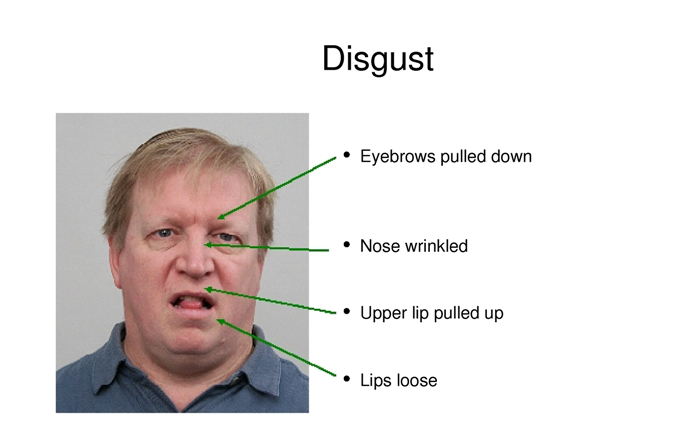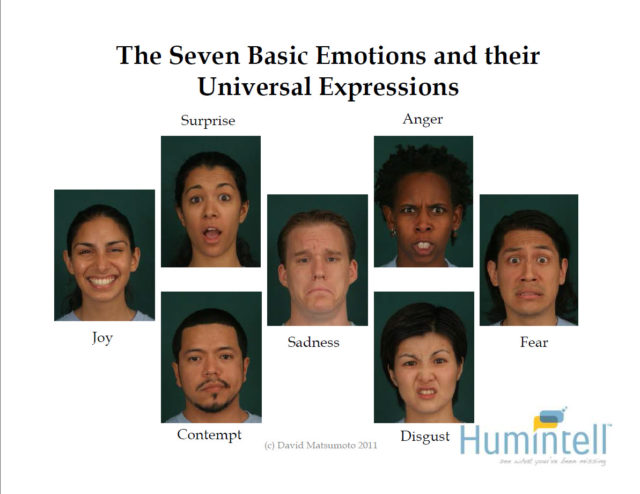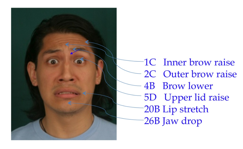Dr. David Matsumoto, Director of Humintell answers questions from his free microexpressions webinar on February 3, 2022. To watch the replay of the webinar in its entirety, go here.
Please find below a complete list of questions and their timestamps corresponding to the above video:
0:00 Introduction by Dr. Matsumoto
0:31 How do you get better at seeing microexpressions? I know I miss SO much
View all of Humintell’s Microexpression Training here
1:43 What is the role of different cultures on micro-facial expression recognition?
2:55 What would be the most necessary jobs that need this type of training?
4:19 What’s better about reading faces than reading the whole body?
6:34 Sometimes the connection btwn microexpressions and emotions is under discussion. I believe you see a clear connection, is this correct? What is your scientific view on this?
Learn more on emotion appraisals here
9:17 Does the ability to achieve high level of focus play a role in the ability of recognizing microexpressions?
11:52 Why don’t we develop videos as a tool to detect microexpressions? If it’s difficult to detect expressions in videos, why don’t we use artificial intelligence or machine learning techniques to detect facial muscles?
15:48 What do you think about using videos in the training process? Is there any reason why you didn’t want to use videos but used photos instead?
16:40 When I go microexpression training, should I treat it like an athlete training who need to exercise on a regular basis to keep up in shape or will I get to the point where I will be able to recognize microexpressions without the need for training?
17:59 Normally I want a candidate to feel comfortable during a recruitment interview but microexpressions show best during high stakes interactions. Is there a specific technique you recommend when asking behavioral based interview questions to keep the candidate comfortable, but also nervous enough to show a true emotion through microexpressions?
20:23 Are there any competencies (ex. teamwork, conflict, leadership, handling stress) that you recommend targeting during a recruitment interview that may reveal microexpressions more so than others?
22:00 Would you prefer virtual video recording to observe full expressions over interviewing in person while wearing a mask?
23:22 Are there any famous incidents of crimes being prevented through microexpression training reading? I remember Lie to Me talked about the murderer’s face.
24:07 Can you recommend any recent publications on microexpressions?
- Background factors predicting accuracy and improvement in micro expression recognition
- Scientific Evidence for Training the Ability to Read Microexpressions of Emotion
- Judgments of Subtle Facial Expressions of Emotion
- Microexpressions Differentiate Truths From Lies About Future Malicious Intent
24:23 Are there any degrees or programs where I can study facial expressions or microexpressions in a university? I haven’t been able to find any.
For more information on how you can earn a certificate in nonverbal communication, go here
26:22 What do you think about the face reading techniques? Like those face readers who read the physiognomy and not muscle movement. 28:16 I have a question regarding CONTEMPT. Some younger people say that they do not see contempt in this way (PFE). In faces of older people they see that expression, in faces of younger people they don’t see contempt in this way. My first thought is that they don’t see the mircroexpressions. Or is it possible that contempt changed a little by generation?
See The Relationship Among Expressions, Labels, and Descriptions of Contempt
The post YOUR Microexpression Questions Answered first appeared on Humintell.


 In a
In a  Any discussion of microexpressions starts with a large acknowledgement to the fact there are
Any discussion of microexpressions starts with a large acknowledgement to the fact there are  There have been so many studies over the last few decades that have demonstrated and documented the importance of being able to read facial expressions of others.
There have been so many studies over the last few decades that have demonstrated and documented the importance of being able to read facial expressions of others. Researchers have measured exactly which muscles are activated when people are spontaneously experiencing and expressing an emotion. If people all around the world experience an emotion and express it spontaneously, the same muscles on their face are activated.
Researchers have measured exactly which muscles are activated when people are spontaneously experiencing and expressing an emotion. If people all around the world experience an emotion and express it spontaneously, the same muscles on their face are activated.